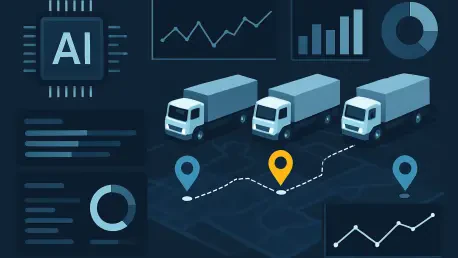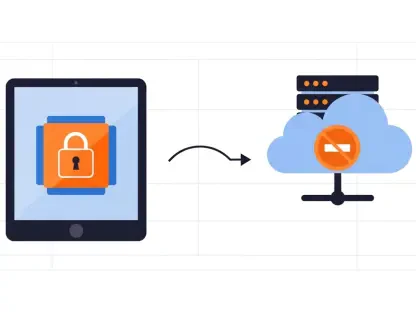In the fast-evolving world of fleet management, Australian operators are grappling with unprecedented challenges, from skyrocketing fuel costs to stringent sustainability regulations and persistent driver shortages that threaten operational efficiency. Amid this landscape, a groundbreaking solution has emerged with the full launch of Geotab Ace, an AI-powered assistant integrated into the MyGeotab platform, unveiled on October 8 in Sydney. This innovative tool, developed through a collaboration with Google Cloud and driven by advanced Gemini models, promises to revolutionize how fleets harness data for decision-making. By translating complex telematics information into actionable insights through simple, everyday language, Geotab Ace addresses critical pain points with speed and precision. Its arrival signals a transformative shift not only for fleet operations but also for the broader adoption of generative AI in enterprise solutions. This article explores the tool’s cutting-edge features, its direct impact on Australian fleets, the competitive dynamics it introduces, and the ethical considerations it prioritizes, while also looking ahead to its potential to reshape industries beyond transportation.
Harnessing Generative AI for Operational Excellence
The introduction of Geotab Ace marks a pivotal moment in fleet management by enabling users to interact with vast datasets through natural language queries, eliminating the need for specialized technical skills or cumbersome static reports. Fleet managers can now pose questions in plain English, such as inquiries about fuel efficiency or driver performance, and receive customized, actionable insights within moments. This democratization of data access breaks down barriers that once delayed critical decisions, empowering a wider range of professionals to tackle operational challenges effectively. Built on a foundation of over 100 billion daily data points from nearly 5 million connected vehicles globally, Geotab Ace leverages a sophisticated Retrieval-Augmented Generation (RAG) architecture to ensure accuracy and relevance in its responses, setting a new standard for how telematics data is utilized.
Underpinning this innovation is a robust technological framework that combines Google Cloud infrastructure with Gemini 1.5 Pro models, designed to process user inputs and convert them into precise database searches. This system not only delivers rapid results but also transforms passive data consumption into an active, conversational experience that aligns with real-world needs. Unlike traditional telematics platforms that often required manual data extraction or expert analysis, Geotab Ace streamlines the entire process, making insights accessible at the click of a button. Early feedback from beta testing phases has highlighted significant productivity gains, with users noting improved clarity in managing complex fleet operations. This shift toward intuitive, AI-driven tools reflects a broader trend in enterprise solutions, where technology adapts to human interaction rather than demanding users adapt to rigid systems.
Tackling Unique Challenges in the Australian Market
Australian fleet operators face a daunting array of obstacles, including escalating fuel prices, a shrinking pool of qualified drivers, and mounting pressure to comply with environmental regulations that demand greener practices. Geotab Ace steps into this fray as a crucial ally, offering real-time analytics on key metrics such as fuel consumption, vehicle wear-and-tear, and driver safety behaviors. By drastically reducing the time needed to extract meaningful insights—from hours or even days to mere seconds—this AI tool enables managers to make informed choices swiftly, whether it’s optimizing routes to save on fuel or identifying maintenance needs before they become costly breakdowns. This capability is particularly vital in a market where economic pressures leave little room for error, positioning Geotab Ace as a lifeline for maintaining operational stability.
Moreover, the tool’s focus on sustainability offers a direct response to Australia’s stringent environmental mandates, providing detailed data on electric vehicle (EV) performance and predictive maintenance schedules that minimize downtime. This alignment with national goals for reduced emissions helps fleets not only meet compliance standards but also gain a competitive edge in an industry increasingly defined by eco-conscious practices. Geotab Ace’s ability to deliver such insights through an intuitive interface ensures that even smaller operators, often lacking dedicated data teams, can leverage sophisticated analytics to improve efficiency. As economic and regulatory challenges continue to evolve, this AI assistant stands out as a practical solution for navigating the complexities of modern fleet management in Australia.
Redefining Competitive Dynamics in Telematics
The launch of Geotab Ace sends a powerful signal across the telematics industry, establishing a new benchmark for what fleet management solutions can achieve with generative AI at their core. With competitors like Samsara and Verizon Connect now under pressure to match this level of innovation, Geotab’s early adoption of advanced AI, combined with its vast proprietary dataset, creates a formidable market advantage. This development suggests that the future of telematics will hinge on intelligent, user-friendly tools that prioritize real-time data access over traditional, labor-intensive reporting methods. Clients are increasingly likely to gravitate toward platforms that offer seamless integration of such capabilities, making AI a critical differentiator in securing and retaining business in this space.
Additionally, the seamless embedding of Geotab Ace into the existing MyGeotab platform enhances its appeal by allowing fleet managers to tap into cutting-edge analytics without the need for extensive system overhauls. This ease of adoption lowers the barrier to entry for companies hesitant to embrace new technology, while still delivering transformative results. The competitive ripple effect of this innovation extends beyond immediate rivals, encouraging broader industry investment in AI-driven solutions that can keep pace with evolving customer expectations. As Geotab solidifies its leadership position, the telematics sector braces for a wave of transformation where data intelligence becomes not just an asset but a fundamental requirement for success.
Prioritizing Ethics and Building Trust in AI
In an era where data security concerns loom large, Geotab Ace sets itself apart by embedding a “privacy-by-design” philosophy into its framework, ensuring that customer information remains protected within a secure environment and is never shared with external models or third parties. This commitment to safeguarding sensitive data addresses a key apprehension among fleet operators wary of adopting AI tools, fostering confidence in the technology’s reliability. By prioritizing privacy from the ground up, Geotab demonstrates a forward-thinking approach that aligns with global standards for responsible data handling, making it a trusted partner for businesses navigating the digital landscape.
Transparency further bolsters user trust through features like “reasoning reports,” which detail the logic behind AI-generated insights, allowing managers to understand and verify the decision-making process. Alongside this, efforts to mitigate AI errors—often referred to as “hallucinations”—involve continuous testing and refinement to maintain accuracy. Importantly, Geotab Ace is positioned as a collaborative tool that augments human expertise rather than replacing it, ensuring that fleet management remains a partnership between technology and human judgment. This balance of innovation with ethical responsibility reflects a maturing perspective on AI deployment, where building long-term trust is as critical as delivering immediate operational benefits.
Envisioning a Future Beyond Fleet Management
The implications of Geotab Ace stretch far beyond the confines of fleet management, hinting at transformative potential across a spectrum of industries such as logistics, manufacturing, and urban planning initiatives. Its natural language interface, capable of simplifying complex data analysis, could streamline operations in diverse contexts—from optimizing delivery schedules to enhancing equipment maintenance in field services or even managing traffic flow in smart city projects. This versatility underscores the growing relevance of AI co-pilots in breaking down technical barriers, making sophisticated insights accessible to non-specialist users and driving efficiency across operational domains that rely on data-driven decisions.
Looking to the horizon, Geotab envisions expanding Ace’s capabilities with advancements like predictive safety analytics, proactive maintenance alerts, and eventual integration with autonomous vehicle systems for real-time operational adjustments. Such developments point toward a future of highly adaptive, automated fleets that align with global priorities around sustainability and efficiency. The potential to support electric vehicle fleets through smart charging optimization and to enhance driver coaching programs further illustrates the tool’s forward-looking design. As AI technology continues to mature, Geotab Ace is poised to lead a paradigm shift, redefining how industries leverage data intelligence to meet both current demands and future challenges.
Reflecting on a Milestone in AI Innovation
Looking back, the rollout of Geotab Ace on October 8 in Sydney proved to be a defining moment for Australian fleet management, showcasing how generative AI could turn complex data into practical, immediate solutions for longstanding operational hurdles. Its impact resonated through enhanced efficiency, cost reductions, and a stronger alignment with environmental goals, offering a blueprint for technology’s role in industry transformation. The emphasis on ethical AI practices, from data privacy to transparent reporting, also set a precedent for how innovation could coexist with trust and responsibility. As its influence began to ripple outward, touching sectors beyond transportation, Geotab Ace highlighted the vast possibilities of domain-specific AI tools. Moving forward, the focus should center on addressing remaining challenges like data integration and scalability, while continuing to refine accuracy through user feedback and technological upgrades. This milestone serves as a reminder that sustained investment in responsible AI can unlock unprecedented value, paving the way for smarter, more adaptive operational ecosystems across the globe.









